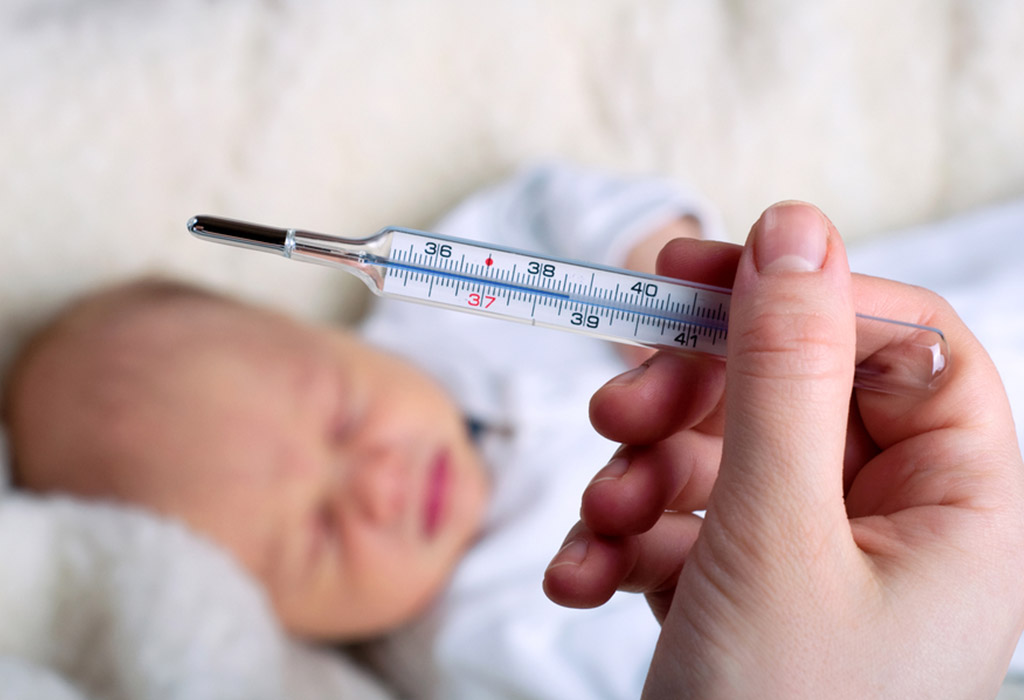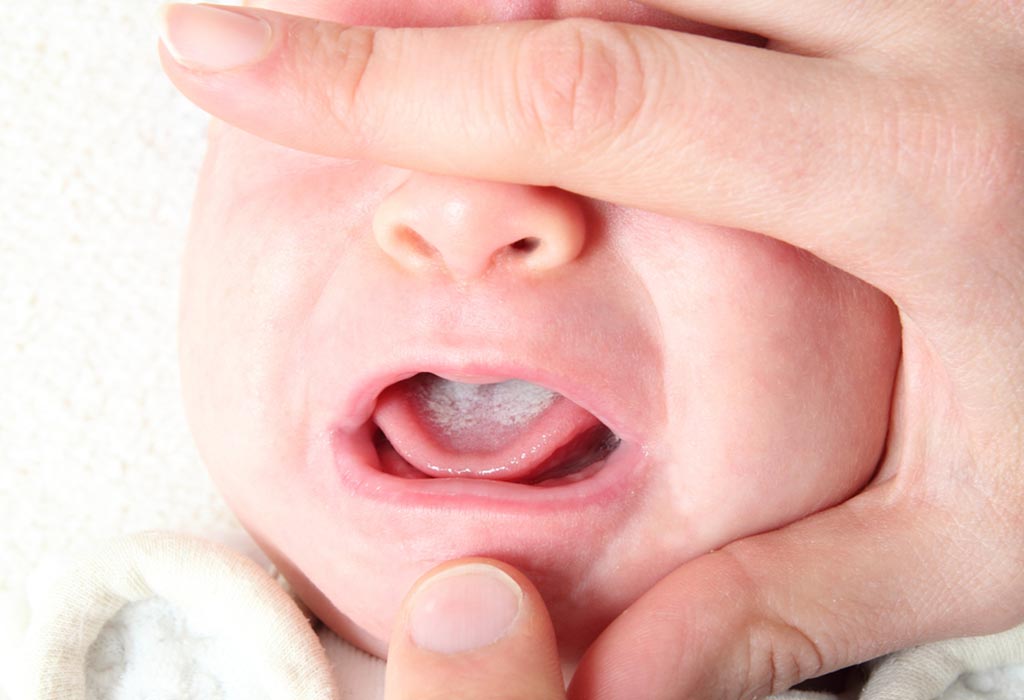Babies are most vulnerable just after birth. They may be born with certain congenital conditions or may contract infections easily. If you are a new parent, you should be aware of the common health problems that babies encounter and how to tackle them so that you can take care of your baby in the best way possible.
Common Health Problems in Newborns and Infants
Infants are vulnerable just after birth and as they make a transition from the safety of the womb to this world. It is the time when they learn to breathe, feed, and more. It is also the time when their lungs, heart, brain, kidneys, liver, etc., learn to coordinate. If they feel any discomfort, the only way they can communicate is by crying. As a parent, you should try and understand what might be troubling your baby and consult your baby’s doctor immediately.
1. Birth Injuries
Sometimes, during the birth process, a baby may suffer a physical injury. It is called birth injury or birth trauma. A birth injury could result from the use of the forceps while getting the baby out of the birth canal. Most babies recover quickly from the trauma of childbirth. Babies delivered normally may have a swelling on their scalp due to vacuum; they may also get injured due to the use of forceps.
2. Jaundice
Jaundice is very common in newborns and infants. It occurs when there is an excess of bilirubin in baby’s blood, which causes yellowish pigmentation of the skin. This is a fairly common problem as many babies are born with neonatal jaundice. It occurs because the baby’s liver is not mature enough to get rid of the excess bilirubin in the blood. Neonatal jaundice normally resolves with time. In most cases, it should disappear within 2 to 3 weeks of the baby’s birth. However, if it persists longer than 3 weeks, it could be a symptom of an underlying condition and parents should check with their baby’s doctor.
3. Colic
Colic is very common in babies but that does not make it easier for parents to handle. When a baby cries continuously for no apparent reason, especially in the evening, he may have colic. The exact cause of colic is not known and some theories behind it suggest that it could be because of gas, hormones that cause stomach pain, overstimulation by light or sound, or a growing digestive system. Colic starts at 2 weeks in full-term infants and should subside by the time the baby is 3 months of age. However, if this condition persists, it could be because of intolerance to milk formula or some other underlying condition. It is best to consult a doctor to get the condition diagnosed.

4. Abdominal Distension
Abdominal distension can occur in newborns and healthy infants. One of the prominent causes of abdominal distension in infants is swallowing of excess air. As a parent, you need to observe the belly of your infant. Newborns have protruding and soft bellies. If your baby’s belly feels hard and swollen when you touch it, it could be because of gas or constipation. As the baby’s body begins to adjust to feeding, the problem should get resolved. However, if a bluish tinge persists and much distension of the abdomen is present, it could mean a serious underlying problem with the internal organs.
5. Bluish Skin and Apnea
Newborns tend to have bluish hands and feet. However, the blue colour fades in time as the blood circulation improves in their bodies. But if you notice bluish tinge around your baby’s mouth and it persists for long along with breathing difficulties, it could mean that the baby’s heart and lungs are not functioning well. Your baby could have apnea if his breathing stops for 15 to 20 seconds and he has bluish skin. Underlying condition indicated is a heart problem that needs medical attention and intervention.
6. Vomiting
Sometimes babies vomit or spit the milk they feed – it is a common occurrence. This is why mothers tend to burp their babies to prevent them from throwing up. After being fed, however, if your baby throws up the milk and you notice a greenish colour in vomit and he continues to vomit, then it could result in a serious problem. Infants can get dehydrated very quickly and medical help and treatment may be needed. Lactose and breast milk intolerance is also a fairly common problem that needs medical support and monitoring. Frequent vomiting and spitting up of the milk could be due to an underlying infection or digestive problems.
7. Coughing
If the flow of the milk is too fast, the baby might cough while being fed. Persistent coughing and gagging while being fed could indicate a problem with the lungs or the digestive system. Coughing at night continuously may indicate whooping cough or respiratory problems. If your baby coughs while being fed or at night, you must take him to a doctor at the earliest.
8. Respiratory Distress
This occurs when there is insufficient oxygen for the baby due to a blockage in his nasal passage. The baby may have bluish skin because of the lack of oxygen. It takes a few hours for the newborn baby to learn to breathe normally. Once normal breathing is established, there should be no more bluish colouration. If wheezing, grunting, and bluish colour persists, checking with a healthcare professional is a must.
9. Anaemia
Children of anaemic mothers are born anaemic. Anaemia is a condition in which red blood cells are less than normal as per a child’s age. Anaemia is the lack of haemoglobin, indicating that the level of oxygen in the blood is low and that the blood is thick. Medical intervention is a must as untreated anaemia could prove to be fatal.
10. Fever
Fever is an indication that the body is fighting an infection. However, high and persistent fever above 101 degrees in newborns and infants can lead to seizures and brain damage. If your baby has a high fever, you must take him to a doctor and get the necessary medication.
11. Skin Problems
Problems like diaper rash and cradle cap are common skin issues which can be painful for a baby. The baby may get diaper rash because of wearing wet or soiled diapers for long or because of an allergic reaction to the dyes or contents of the diaper. Frequent changing of diapers and use of a good diaper rash cream is recommended. If the baby has cradle cap, it could be because of excess oil production by skin glands surrounding hair follicles. The main symptom of cradle cap is scales on the scalp. You can wash your baby’s hair with mild shampoo on a daily basis to loosen up and remove the scales on his scalp. This condition should resolve within a few months, but if it doesn’t, check with your baby’s doctor.
12. Ear Infections
Ear infections are common in babies. When a baby has an ear infection, he may tug at his infected ear and will be very fussy. Viral infections are common but they subside within a few days. Bacterial infections, however, can persist for long and can even lead to loss of hearing and may need antibiotics.
13. Oral Thrush
Oral thrush is a yeast infection occurring in the mouth of the babies. Also known as oral candidiasis, this infection is common in babies. It causes white lesions on the tongue or inner cheeks. If your baby has oral thrush, check with the doctor if it is serious enough to administer anti-fungal medication.
14. Cold and Flu
A cold and flu affect almost all infants and newborns as they adjust to the outside world. Although a cold and flu may appear insignificant, it should not be taken lightly as a cold and flu can develop into pneumonia and other serious diseases in newborns and infants.
15. Diarrhoea
Diarrhoea is a common reaction to antibiotics and infections in infants. If your baby has diarrhoea, keep him well hydrated by giving him oral saline and water. Also, monitor his stool – if you notice a change in his colour and texture of stools, consult a doctor. Just like diarrhoea, constipation is also very common in infants and newborns. If your baby is constipated for more than three days, check with your baby’s doctor.
Most often, health problems and diseases in newborns and infants resolve on their own with time as babies get stronger and learn to cope. But parents should be very careful. Take your baby for regular checkups to the paediatrician, maintain hygiene, and most of all, have a calm and serene mind. If your baby has any discomfort, please consult your doctor. Meanwhile, enjoy the arrival and adjustment phase with your baby. Not every cough or sneeze is serious!
References and Resources: KidsHealth












